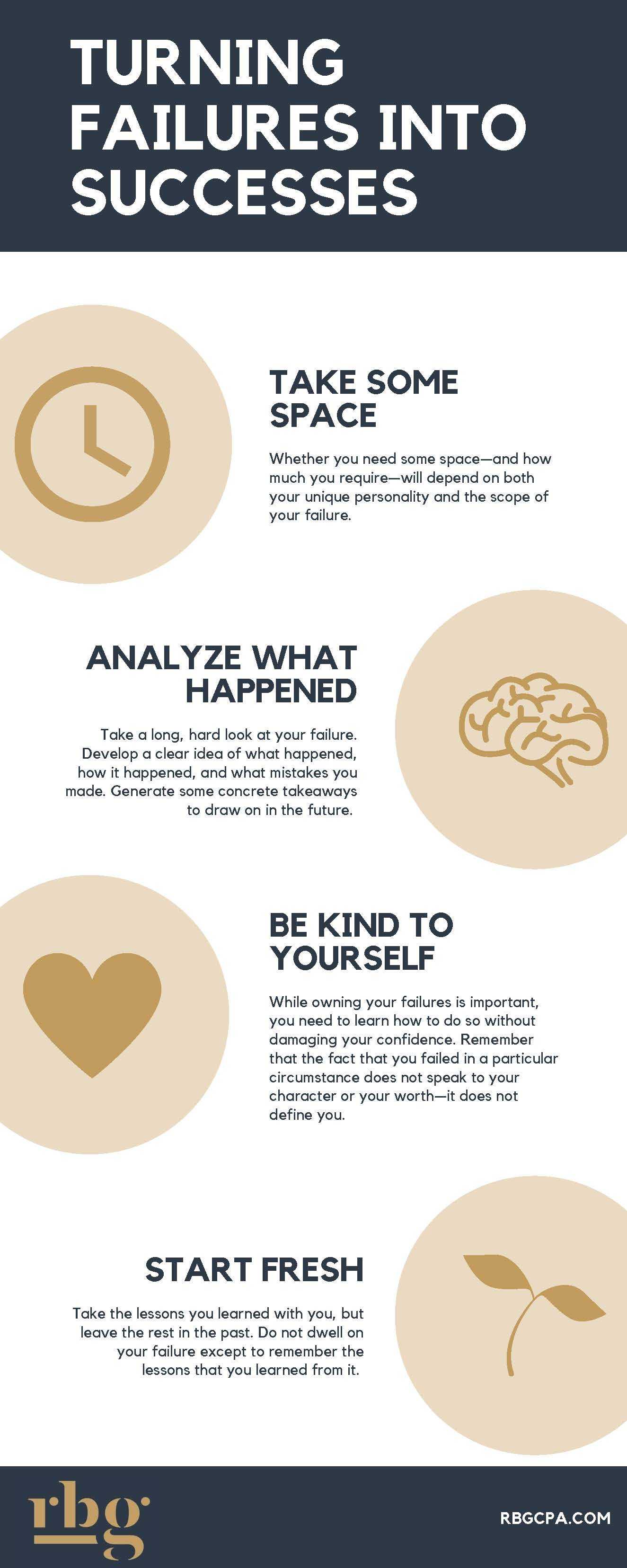Have you ever heard somebody talk about their “failure resume?” Doesn’t sound like a very appealing topic, right? Wrong. This person likely had a very healthy view of failure—they understood the key to turning failures into successes. 
When you fail, the worst way you can respond is by trying to forget about what happened. Instead, the best move is to put the failure to use by analyzing it and learning from it. 
Learning From Failure
Here are some tips for how you can turn your failures into success:
- Take Some Space – Whether you need some space—and how much you require—will depend on both your unique personality and the scope of your failure. If you are the type of person who can easily brush things off, you may not need much time to process what happened. However, if you tend to take failures hard, you might need more time and space before addressing what happened. Just be sure that you return to analyze your failure after taking however much time you need away from it.
- Analyze What Happened – Once you are ready, take a long, hard look at your failure. Develop a clear idea of what happened, how it happened, and what mistakes you made. Develop some concrete lessons that you can take away from what happened. Acknowledging the failure and the role you played in it will allow you to learn from your mistakes.
- Be Kind to Yourself – While owning your failures is important, you need to learn how to do so without damaging your confidence. Throughout this process, pay attention to how you talk to yourself. Keep in mind that you are analyzing the problem in order to learn from it and avoid repeating it in the future. Remember that the fact that you failed in a particular circumstance does not speak to your character or your worth—it doesn’t define you.
- Start Fresh – After you have evaluated and analyzed your failure, take the lessons you learned with you, but leave the rest in the past. Do not dwell on your failure except to remember the lessons that you learned from it. 
Mistakes to Avoid
Learning from your failures is no easy task. Consistent results require consistent practice. Additionally, there are a few common mistakes that you should learn to guard against. Keep in mind that you should avoid:
- Letting your mistakes define you – You are not your failure. Rather, you are someone who has failed at something. Not only that, but you are not alone in your failure—everyone fails sometimes.
- Letting the fear of failure lead to inaction – It is difficult to rebound from failure. Fear of taking action is a common result. To counter the tendency towards inaction, remind yourself that doing nothing is as much a choice as doing something—either road presents some level of risk. Oftentimes, it is better to do something imperfectly than to do nothing at all.
- Losing confidence in yourself РJust because you have failed in the past does not mean you will continue to fail in the future (especially if you have taken the time to learn from your previous failure). If you find that you are focusing on your failure and losing confidence, try this trick: force yourself to spend at least as much time dwelling on “What if I am successful?” as you do pondering “What if I fail?”


Add a Comment